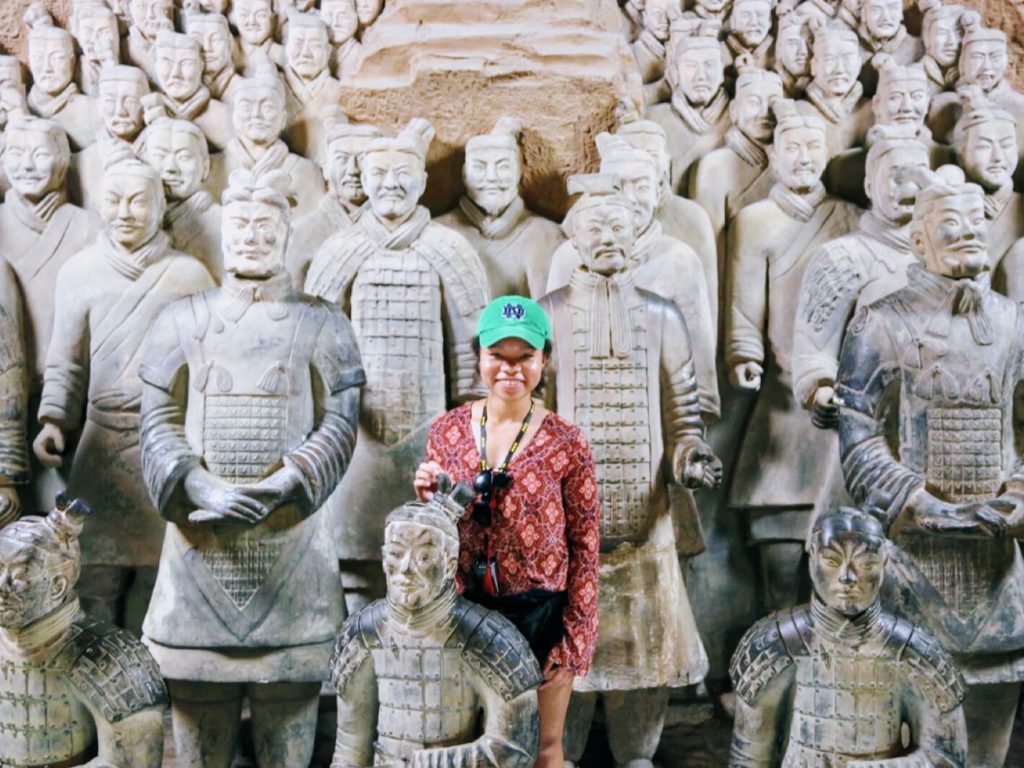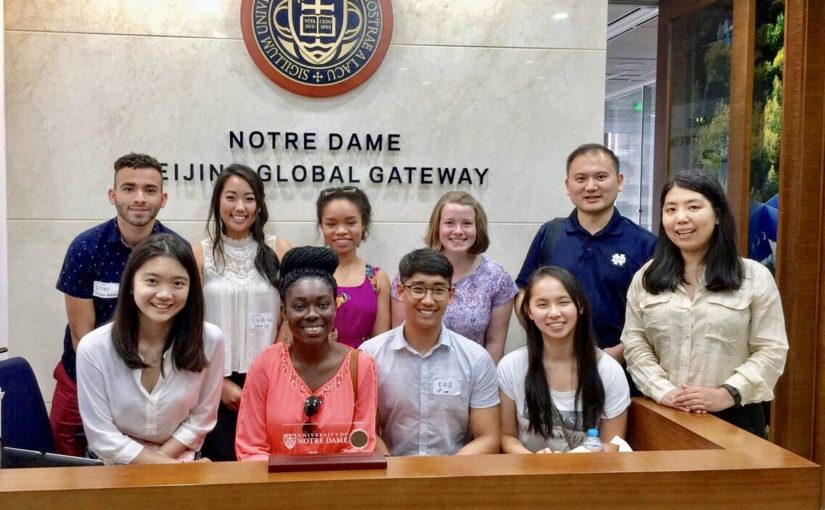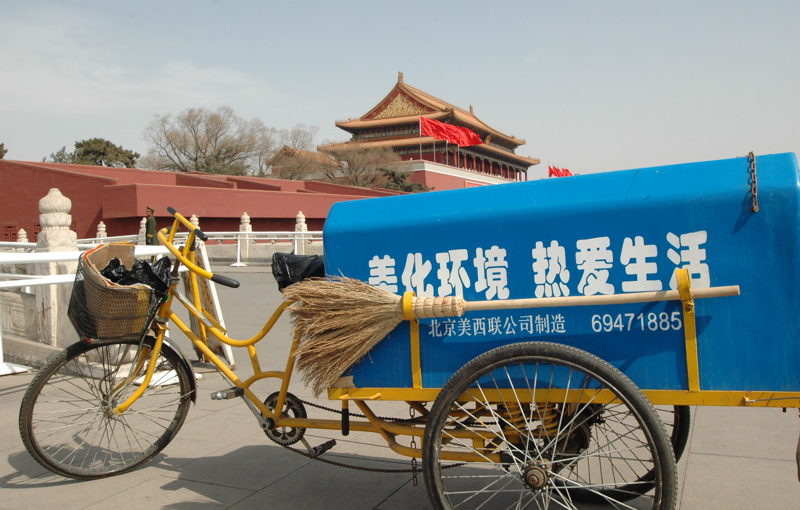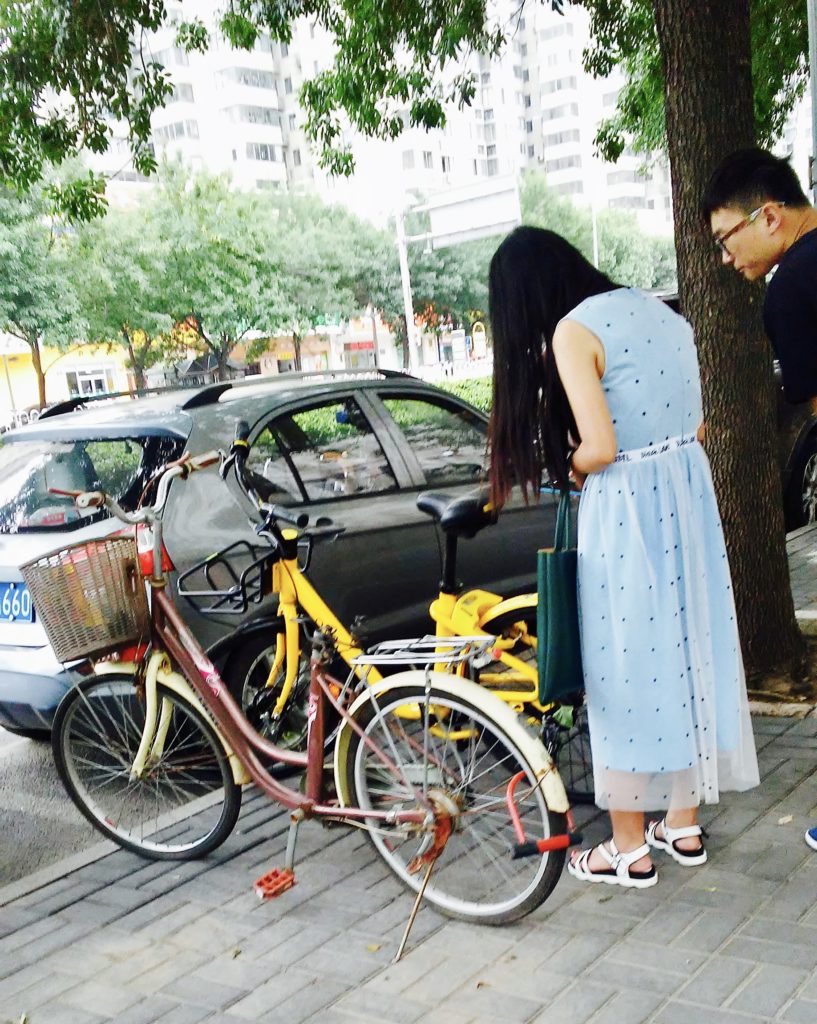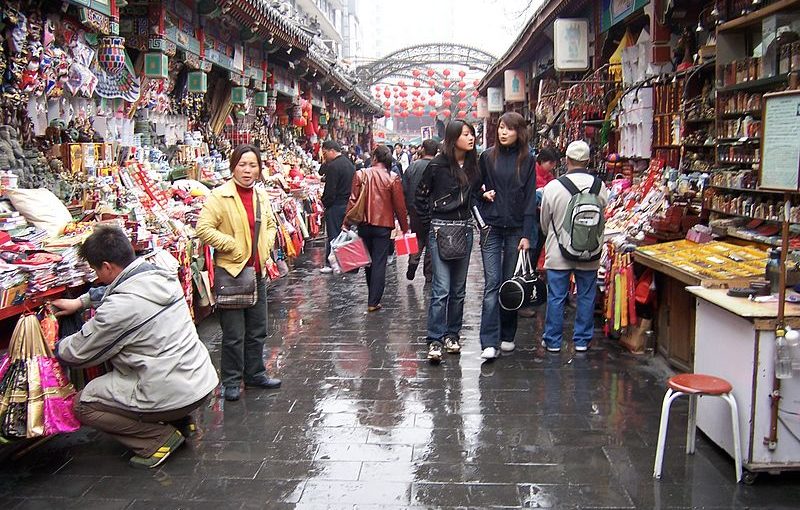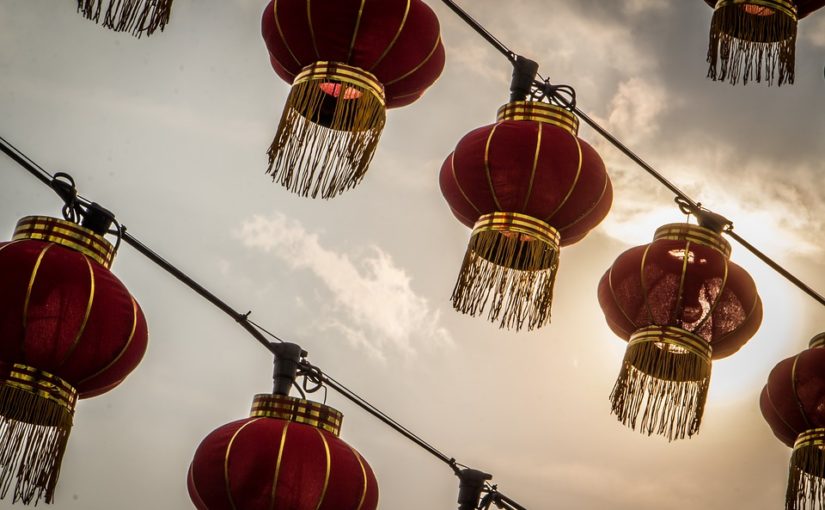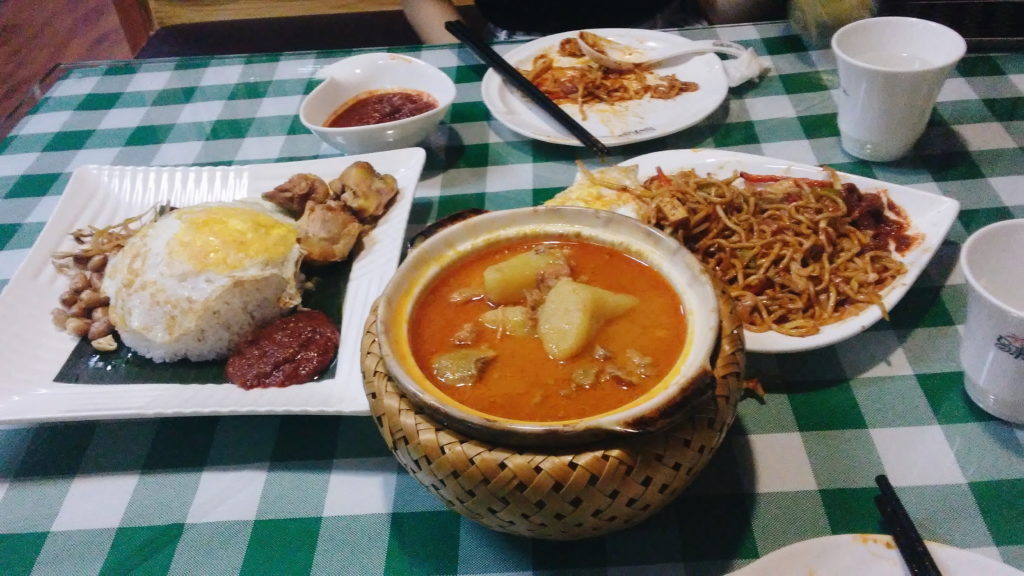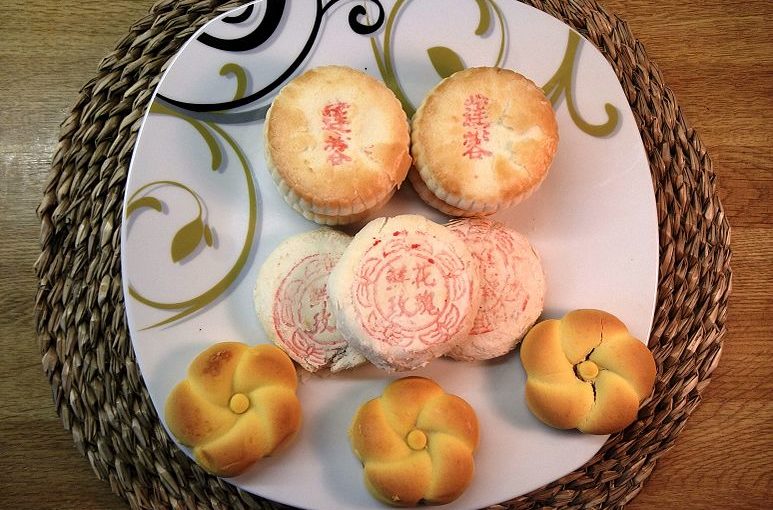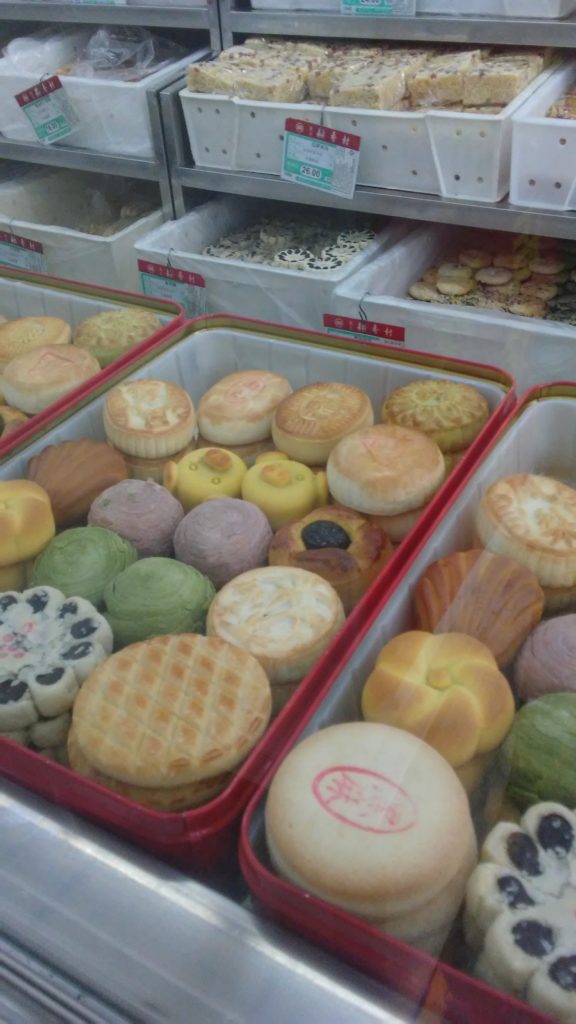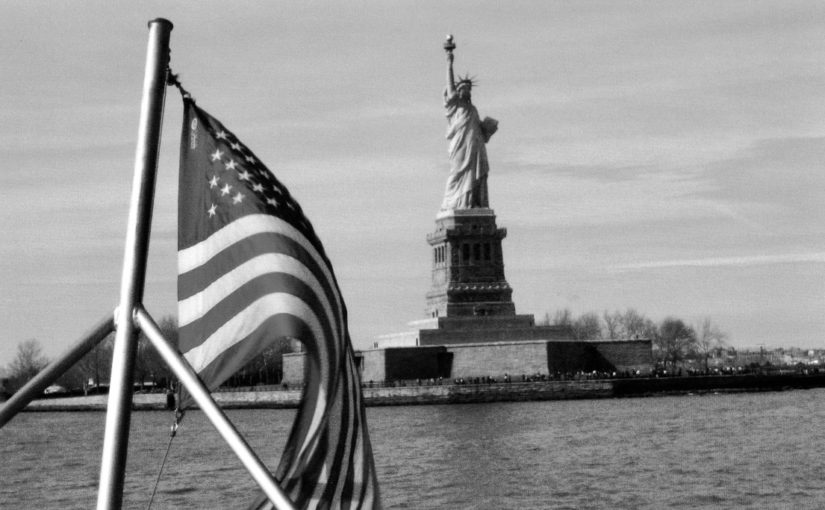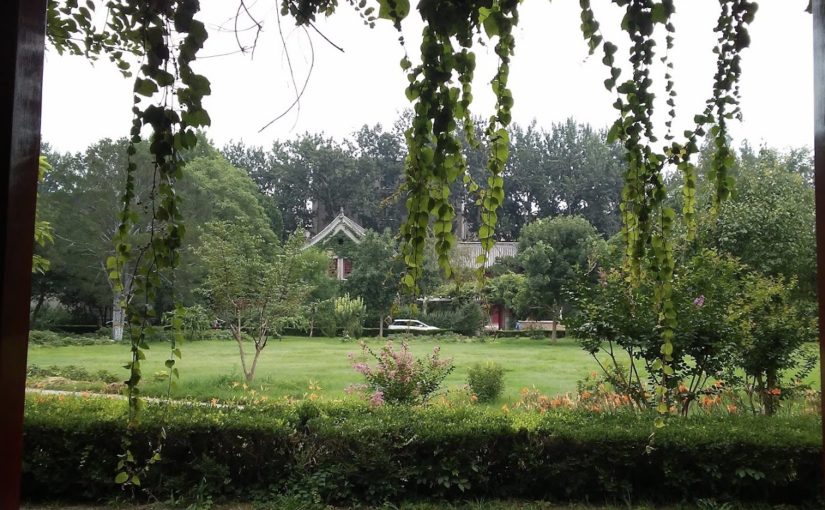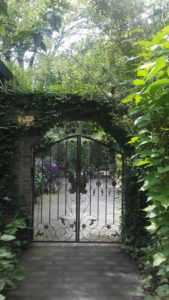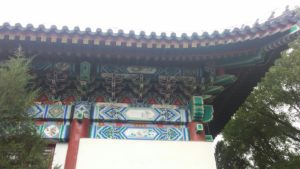It is always interesting to hear what people from other countries think about the United States. Sometimes people outside the US have the funniest things to say about Americans, and sometimes their opinions cause me to reconsider my own take on things. In China, a vast country of long tradition, most of the people you see are the Han Chinese. China is not as diverse as the States, or even the United Kingdom. As a result, foreigners, or “wai外 guo国 ren人” in China visiting famous sites often themselves become attractions to the locals. In a sea of silky black hair and dark eyes, blue eyes, blond hair or anything that is evidently not Chinese is an unusual and interesting figure. Foreigners are sure to stand out a great deal more in China than many other nations, and so it is common to find people taking your picture. In better situations, they sometimes ask first, but stares and shameless picture-taking of foreign strangers is commonplace.
The first person who gave me his opinion of America volunteered his opinion without me even having to ask. He was about a middle-aged gentleman at a small street clothing store, or a xiao小 tan摊, where I was shopping around for a pair of pants. He was really a lively individual and never stopped talking; he seemed to be either praising every pair of pants I picked up as the perfect fit, or making very random, general statements about America. If I so much as eyed a pair of pants, and he’d immediately pick it up and pat it authoritatively, press it into my hands, and pace around me. While doing this, he would repeat three or four times, “This design is very beautiful, it would look very beautiful on you,” then would say in broken English, “America! Everything! Big!” or “America! Guns!”, and would conclude with a good laugh. Despite this interesting accompaniment, I managed to select my pants, and eventually turned to the conversational gentleman and asked if he knew anything else about America. He laughed a great deal, but made a remark about the States that to me, an American, was disappointing. He said that America was dangerous because of the many guns, and I later learned this view was not one unique to him. The vendor also added that Americans eat too much. He was not the last person to express disapproval for American eating habits.
Several weeks later, I had the chance to speak with a schoolgirl around 13 or 14 years of age. “What’s your opinion of America?” I asked. Her first response was one word: “independence.” This was cheering for about five seconds until she followed up with another word “lazy.” Her take on America seemed somewhat more favorable than the previous interviewee; she’d named the pros and cons. But then again, I thought, perhaps she named these two qualities as a way of saying that Americans enjoy freedom without taking responsibility. Chinese culture holds a high regard for faithfulness, placing duty above individual rights. I pressed her for more information and asked her what she thought Americans did with their lives on a daily basis. Her answer was once again simple, but less complimentary. “Fat,” she said, with a giggle. I again urged her to elaborate. She finally said that we must be so fat due to living off of burgers and fries. I smiled, and thanked her for her time. So far, all my interviewees had knocked American health habits.

The third group of people I talked to were my Chinese teachers, a group of women from different parts of China, all very fashionable, all graduate school-aged, and all under 5 ft 3 in. Like the voluble vendor, they expressed concern over the amount of guns in America, but were also curious about the American fondness for cars, especially those on the larger side. “Why do you need such big cars?” was the question, which began a discussion of gas-guzzlers, Jeeps, and monster trucks. This “car talk” revealed that, for the most part, Americans don’t really need the big cars, it’s just that we like them, which then led to “Why do you like the big cars ?” And, despite almost never touching the topic of Chinese politics, the teachers are often ask our opinion on American presidents, both past and present. Like my first respondent, several teachers have an impression of America as dangerous nation because of the easy access to firearms. It was disappointing, because I would have hoped that America could project a more refined image to the world. At the same time, I could not be surprised; on the subject of guns, many from other nations express similar views, and mistake most Americans to be gun-toting citizens who like their cars like they like their food servings: big and full of oil.
Overall, I gathered that many Chinese have a rather poor regard for America. One of my teachers did note that American men seem well-mannered, in terms of opening doors. The only other thing that might be considered favorable was that most everyone seemed to have a high opinion of McDonald’s, which I do not share, to the great surprise of some of my teachers. “The burgers are so good!” she exclaimed, “How do you not like them?” I just wish I could’ve brought them a real, homestyle burger from a family-run cafe to show that there’s more to American burgers than just McD’s, and, perhaps, introduce a different side of the U.S.A.
